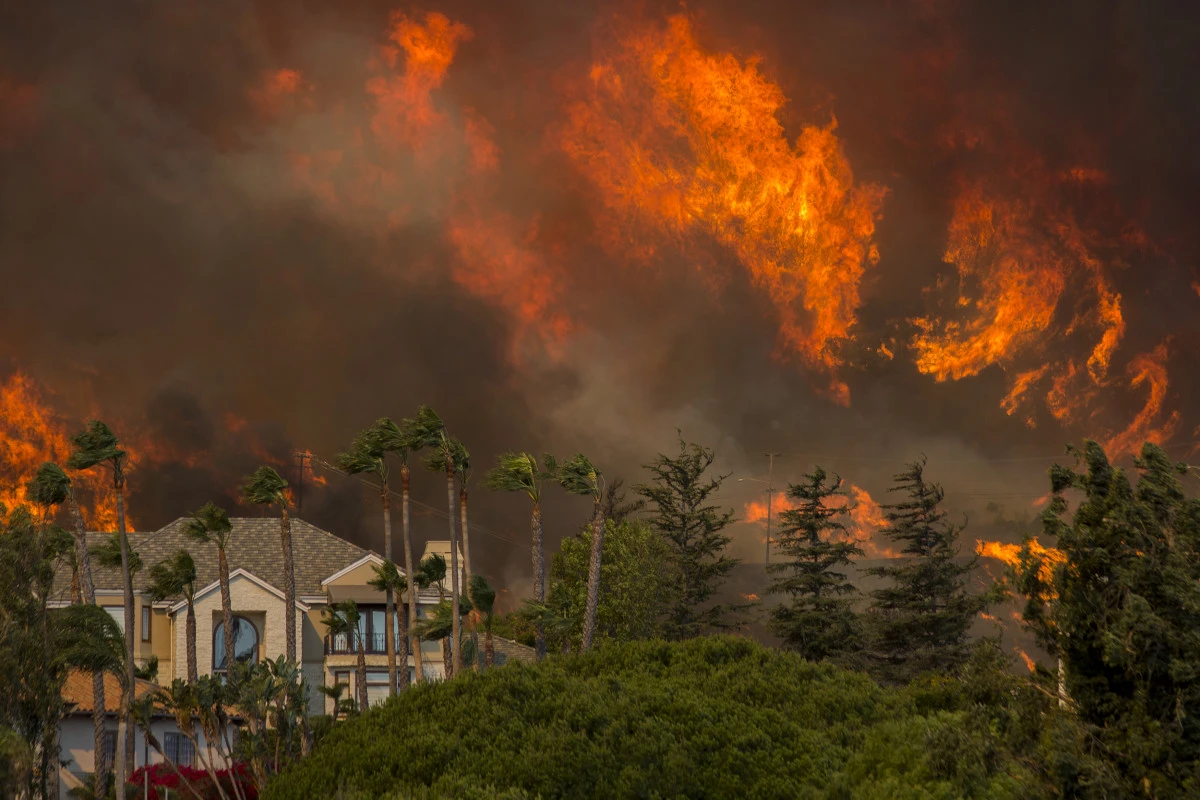Climate Change Concerns Soar as Extreme Weather Batters World

A new poll released this week shows that public concern about climate change has increased sharply this summer, as extreme weather events have become more frequent and severe.
Extreme Weather Events Raise Awareness of Climate Change
The poll, conducted by Ipsos MORI, found that one in four Britons now see the environment as an important issue for the country, double the proportion in July. The issue now ranks joint third with the NHS, which has seen a drop of 8 percentage points since July.
The findings come after a summer of extreme weather events, including wildfires in Europe and the United States, and heatwaves in India and Pakistan. These events have helped to raise awareness of the threat of climate change and the need for action.
 Firefighters battling a grass fire on Leyton flats in east London, August 2022
Firefighters battling a grass fire on Leyton flats in east London, August 2022Climate Change Divide Widens as Public Concern Grows
The poll also found that there is a growing partisan divide on the issue of climate change, with Labour Party supporters more likely to be concerned than Conservative Party supporters. This divide is likely to be further exacerbated by the government’s recent decision to water down green policies.
The findings of the poll suggest that public concern about climate change is reaching a tipping point. With extreme weather events becoming more frequent and severe, it is becoming increasingly difficult to ignore the issue. The government needs to take urgent action to address climate change, or risk further alienating the public.
In addition to the poll findings, there is also scientific evidence to suggest that climate change is happening and is accelerating. The rate of warming since 1981 is more than twice as fast as the average rate of warming over the past 1,000 years. This warming caused by human activities, such as the burning of fossil fuels, which release greenhouse gases into the atmosphere.

Climate change impacts felt around the world
The impacts of climate change are already being felt around the world, in the form of more extreme weather events, rising sea levels, and changes in agricultural yields. These impacts expected to become more severe in the future, unless we take action to reduce greenhouse gas emissions.
The good news is that there are still things we can do to address climate change. We can switch to renewable energy sources, improve energy efficiency, and reduce our reliance on fossil fuels. We can also make changes to our lifestyles, such as driving less and eating less meat.
 Low water levels at Baitings Reservoir reveal an ancient bridge as drought conditions continue in the heatwave in Ripponden, United Kingdom
Low water levels at Baitings Reservoir reveal an ancient bridge as drought conditions continue in the heatwave in Ripponden, United KingdomThe time to act on climate change is now. We cannot afford to wait any longer.

- Art
- Causes
- Best Offers
- Crafts
- Dance
- Drinks
- Film
- Fitness
- Food
- Jogos
- Festival
- Gardening
- Health
- Início
- Literature
- Music
- Networking
- Outro
- Party
- Religion
- Shopping
- Sports
- Theater
- Wellness



